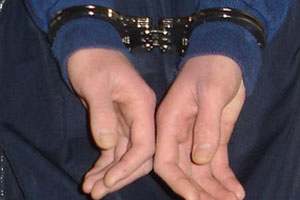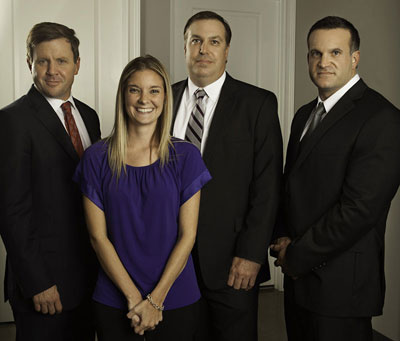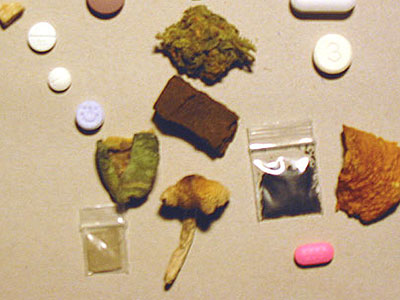Drug Possession Defense Lawyers:
Although not as severe as the sale of controlled substances, drug possession or possession of a controlled substance of any kind in Florida is a serious offense that can have a much better outcome with experienced Drug Possession Defense Lawyers.
It could involve the loss of your license, the loss of your property, the loss of your freedom. And in Florida, possession crimes do not take ownership into consideration, meaning you are still be criminally liable if it isn’t yours.
At the Fernandez Law Group, we have more than 50 years combined legal experience handling criminal cases of this kind in the Tampa Bay area.
Our team of drug possession defense lawyers have over 20 years of experience as former prosecutors who once handed these same cases from the prosecution side. We give you a solid defense team that will get to the prosecution before the case goes to trial and we work aggressively on your behalf to get you the best possible outcome – often reducing charges, bail amounts, and sentencing before a trial date is even discussed.
Fernandez Law Group:
Great firm. Handled things beyond what you would expect. Worked hard with me to make me feel comfortable about my situation. Jeff Quisenberry is great! Recommend this firm to anyone in need.
Rated 5 out of 5 by Austin LeeGaines on
on March 3, 2017 | Link to Review
Possession of a Controlled Substance in Florida:
The possession of controlled substances is carefully regulated in Florida, and anyone found in violation of these rules will be faced with penalties. Here, well known drugs including heroin, methamphetamine, ecstasy or MDMA, cocaine and/or crack-cocaine are classified as controlled substances, along with marijuana. Also included in this classification are not just those substances, but any compounds used to manufacture them as well.
Our Drug Possession Defense Lawyers are ready to provide you with a detailed consultation for FREE!
The Scheduling of Controlled Substances in Florida is broken into 5 categories:
- Schedule I – These drugs have a high potential for abuse and no accepted medical use.Schedule I drugs include: Heroin, cannabis, dimethyltryptamine, ibogaine, mescaline, peyote, psilocybin, salvia divinorum, tetrahydrocannabinols.
- Schedule II – These drugs also have a high potential for abuse but they also have a limited accepted medical use with severe restrictions. Abuse of Schedule II drugs can lead to severe psychic and physical dependency.Schedule II drugs include: Opium, morphine, codeine, hydrocodone, ocycodone, fentanyl, methadone, amphetamine, methamphetamine, pentobarbital.
- Schedule III – These drugs have less abuse potential than Schedule II or Schedule I drugs and also have an accepted medical use. Abuse of Schedule III drugs may lead to low or moderate physical dependence as well as a high psychological dependence.Schedule III drugs include: Anabolic steroids including stanozolol, testosterone, trenbolone and others. Additional schedule III drugs include benzphetamine, lysergic acid, nalorphine, and ketamine.
- Schedule IV – These drugs have less potential for abuse than Schedule III drugs and also have an accepted medical use. The abuse of Schedule IV drugs may lead to light physical or psychological dependence.Schedule IV drugs include: Alprazolam, barbital, clonazepam, diazepam, lorazepam, phenobarbital, and quazepam.
- Schedule V – These drugs have the least potential for abuse and also have a current and accepted medical use. There is limited risk of physical or psychological dependency.Schedule V drugs include: Any medicine that contains small amounts of specified narcotic drugs:
1. Not more than 200 milligrams of codeine per 100 milliliters or per 100 grams.
2. Not more than 100 milligrams of dihydrocodeine per 100 milliliters or per 100 grams.
3. Not more than 100 milligrams of ethylmorphine per 100 milliliters or per 100 grams.
4. Not more than 2.5 milligrams of diphenoxylate and not less than 25 micrograms of atropine sulfate per dosage unit.
5. Not more than 100 milligrams of opium per 100 milliliters or per 100 grams.
(b) Narcotic drugs. Unless specifically excepted or unless listed in another schedule, any material, compound, mixture, or preparation containing any of the following narcotic drugs and their salts: Buprenorphine.
(c) Stimulants. Unless specifically excepted or unless listed in another schedule, any material, compound, mixture, or preparation which contains any quantity of the following substances having a stimulant effect on the central nervous system, including its salts, isomers, and salts of isomers: Pyrovalerone.
Penalties for the Possession of a Controlled Substance in Florida:

Actual Possession:
Actual possession of a controlled substance is the result of the substance being in the physical custody of a defendant. Actual possession occurs when there is a controlled substance in the pocket of a jacket, or tucked into a shoe or sock.
Constructive Possession:
Constructive possession of a controlled substance occurs when a defendant has knowledge of the whereabouts of the substance, as well as the ability to access and control the substance. Constructive possession occurs in a vehicle if the substance is in a glove box, or if at a home, when the substance is in a room or location within the house.
First Degree Felony Possession:
- First degree felony possession occurs if a defendant is in possession of 10 grams or more of any Schedule I drug excluding Hallucinogens, 1,4-Butanediol, gamma-butyrolactone (GBL), gamma-hydroxybutyric acid (GHB), methaqualone and mecloqualone.
- First degree felony possession is punishable with a fine of up to $10,000 and incarceration of up to 30 years.
Third Degree Felony Possession:
- Possession of any controlled substance not mentioned here, whether actual or constructive, is a felony of the third degree which is punishable by a fine of up to $5,000, a period of incarceration not to exceed five (5) years, or both. Substances obtained by valid prescription are excluded.
Misdemeanor Possession of the First Degree:
The possession of the following controlled substances is a misdemeanor of the first degree and is punishable by up to one year in jail, a fine of up to $1,000, or both:
- up to 20 grams of marijuana
- up to three grams of 2-[(1R,3S)-3-hydroxycyclohexyl]-5-(2-methyloctan-2-yl)phenol
- up to three grams of (6aR,10aR)-9-(hydroxymethyl)-6,6-dimethyl-3-(2-methyloctan-2-yl)-6a,7,10,10a-tetrahydrobenzo
- up to three grams of [c]chromen-1-ol
- up to three grams of 48. 1-Pentyl-3-(1-naphthoyl)indole, or
- up to three grams of 49. 1-Butyl-3-(1-naphthoyl)indole.
Repeat Offenders:
Any defendant in Florida will be faced with harsher penalties for multiple convictions.
Repeat Felony Offenses:
In Florida, any defendant who has two or more prior felony convictions will face an increased penalty for subsequent convictions. Therefore, a subsequent conviction of a first degree felony can result in a sentence to incarceration for life. Subsequent convictions for a third degree felony can result in sentencing to incarceration for up to ten (10) years.
* See Florida Criminal Code Section 775.084 for more information.
Repeat Misdemeanor Offenses:
Any defendant in Florida who has four (4) or more prior convictions for misdemeanors may face one of the following additional penalties:
- six (6) months to one (1) year incarceration
- home detention for six (6) months up to 364 days
- enrollment in a residential treatment program
* See Florida Criminal Code Section 775.0837 for more information.
Why should you choose the Drug Possession Defense Lawyers of Fernandez Law Group to defend you against drug possession charges?

Family, finances, freedom, your career, and children can all become concerns and our attorneys recognize how important it is to provide you with the best possible defense.
When you come to Fernandez Law Group, you’ll gain an instant advantage in your case as we provide you with a team of attorneys working on your defense. We can help you understand the crime you’ve been charged with along with any and all possible defenses or options available to you. Additionally, our attorneys make up fewer than 10% of all Florida attorneys who are experienced and qualified to practice in federal courts.
Not only that, our team of criminal defense lawyers have over 20 years of experience as former prosecutors working on that side of the courtroom. Because of that insight we are able to better communicate with the prosecution on your behalf, often reducing charges, bail amounts, and sentencing before a trial date is even discussed – and in some cases, trial may not even be necessary.
When you have drug possession defense lawyers with experience as former prosecutors on your side, along with additional attorneys, and they’re fewer than 10% in Florida who are qualified for federal practice, you are getting very solid representation that shows the prosecution you mean business.
Our attorneys are ready to fight aggressively on your behalf and help you get the best possible outcome and with our FREE consultation, you can begin getting the advice and guidance you need right away.



 Rated 5 out of 5 by
Rated 5 out of 5 by 